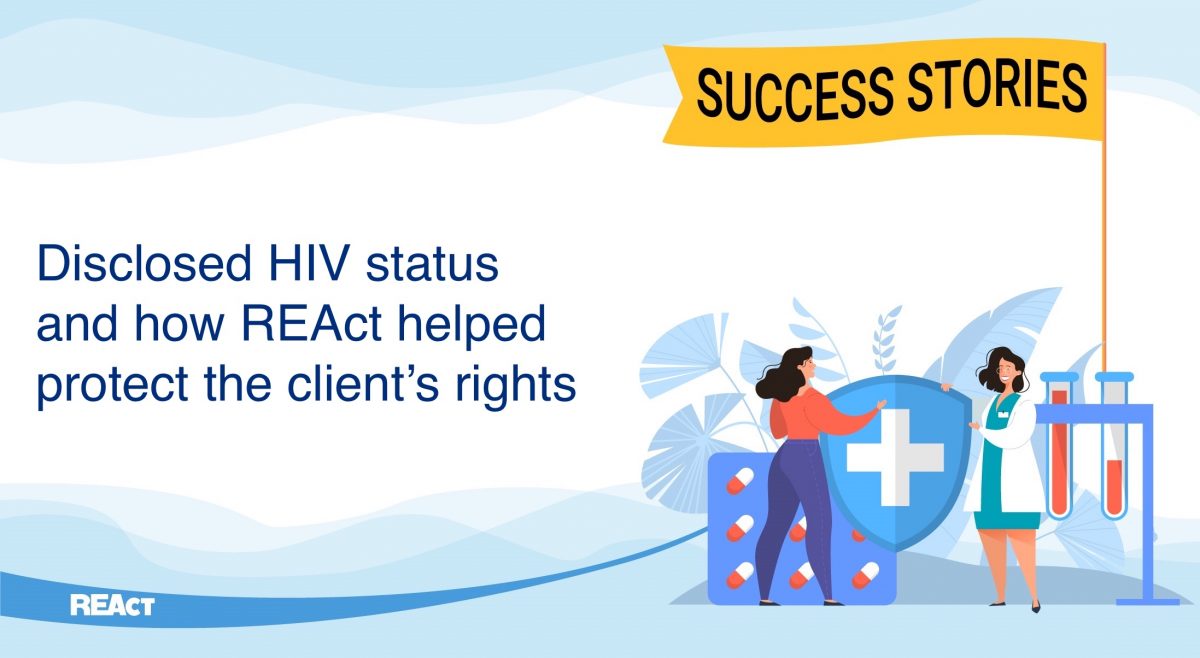When a person first learns about his or her HIV status, they find it hard to accept the truth, and are often in denial. Because of this, it is difficult for them to open up to their family members about their illness. The high level of stigma in society is another reason why many people like these choose to avoid disclosing their HIV status. However, it often happens that the disclosure of HIV status is made against the person’s wishes.
Snizhana reached out to REAct in a highly depressed state. The woman was living with HIV, receiving ARV therapy with an attitude of responsibility, raising a young daughter, and caring for her mother with a disability. After having started a new relationship with a man, the client began to receive threats and then intimidation by a neighbor who had previously been her close girlfriend. When that “girlfriend” went on to destroy Snizhana’s property, she had to take the matter to the police. Law enforcement officers responded to her calls but their interventions were limited to verbal admonishments only. Eventually, the woman’s HIV-positive status was revealed to the building’s residents and her family members. This made it impossible for the client to lead a normal life.
Faced with the inaction of the local police, Snizhana called the police hotline and she was told that verbal threats were not considered a crime against a person. Thus, it turned out that the state provided no legislative protection for people who find themselves in such a situation.
Thanks to the coordinated efforts by REAct and CO CF Hromadske Zdorovia (Kryvyi Rih), the client was provided with psycho-emotional support by the foundation’s psychologist, who helped her deal with the HIV status disclosure situation and overcome the anxiety for her and her child’s life and health. Afterward, the woman was referred to the legal aid site for further steps that ensure that her rights are protected.
Now Snizhana’s life is gradually improving, and the support provided by the REAct project has been here a contributing factor.


